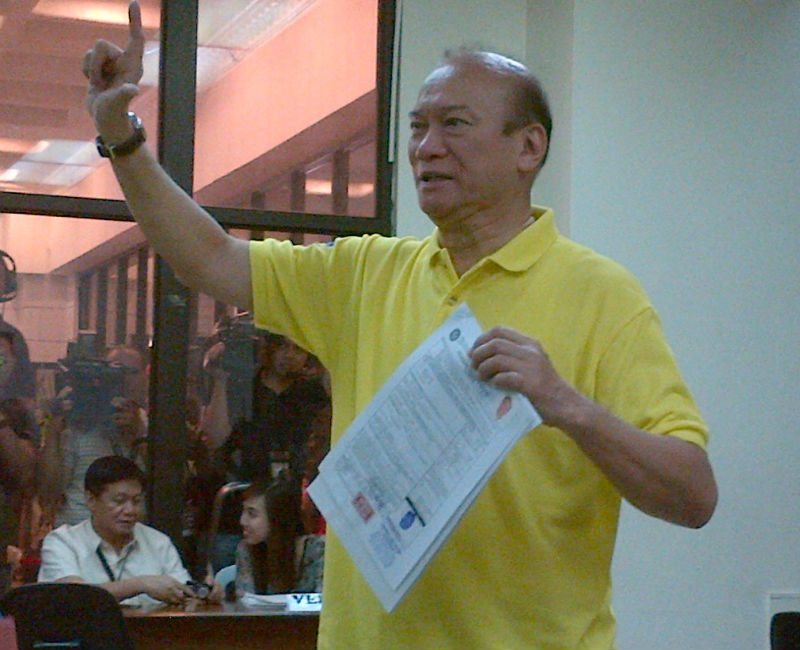Social media makes campaign easier
CARMONA, Cavite—There was still no Facebook when former Sen. Ramon Magsaysay, Jr. ran and won a Senate seat in the 1995 senatorial elections but he acknowledged that the social networks had made it easier for candidates to mount a national campaign now.
Magsaysay, a 74-year-old two-term senator, however, said nothing beats meeting the voters eye to eye while pressing flesh in actual sorties in both urban centers and in the countryside.
“The last time I ran was in 2001. There was still no Facebook. But there already was e-mail then,” Magsaysay told reporters during a campaign stop.
Members of the Team PNoy ticket campaigned on the third day of its hustings through the vote-rich provinces in Southern Tagalog.
“It’s easier in a way [with social media] but we, old timers in traditional campaigning, pressing the flesh, meeting eye to eye means a lot because you will the see the conditions at the local level, the people’s levels of comfort, what their problems are,” Magsaysay said.
While saying media coverage and social networks are important for a nationwide campaign, Magsaysay said that meeting the electorate provides candidates with inputs on how to improve lives and do something about them if they are elected as senators.
“It’s good to be connected,” Magsaysay said.
The oldest among Team PNoy’s candidates, Magsaysay reminded his fellow administration bets about the importance of actually showing up in campaign rallies instead of just sending representatives.
Asked if he would suggest that the candidates themselves attend rallies instead of their respective proxies, Magsaysay said: “Preferably.”
“Especially so if the [candidate for governor] is there. It’s like giving no importance to the people around,” Magsaysay said.
Magsaysay noted that the slate wasn’t complete when President Aquino himself showed up in the Laguna sortie.
“I hope we’d be a solid 12 in the campaign,” Magsaysay said.
Aurora Rep. Juan Edgardo Angara, for his part, said it was understandable for the slate not to be complete in some instances.
He said some candidates already have prior commitments.
Angara said breaking the slate into teams could result in the team spending less time speaking in just one venue and cover a wider area for the whole ticket.
